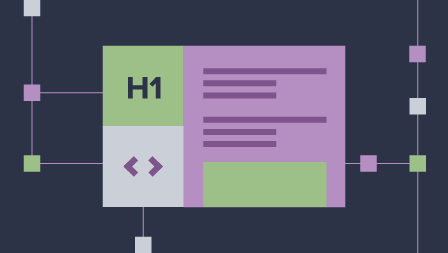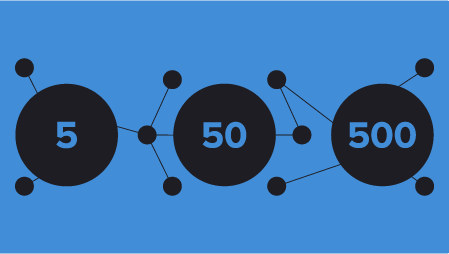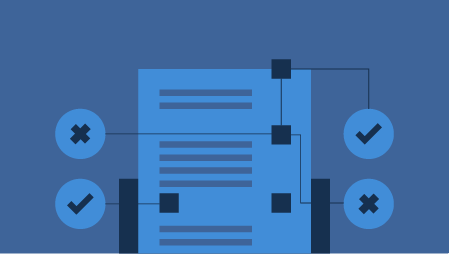Blockchain in the spine of the digital supply chain. It helps the consumers and organizations end to end right from tracking their product from pickup to its final destination. This series shall discuss the crucial role Blockchain plays in the product supply chain and Hybrid(On-chain+Of-chain) system.
Blockchain technology alone cannot provide freshness, safety, provenance, and recall capabilities. That requires data and capabilities from outside the blockchain. It seems that the best emerging approach will be a hybrid consisting of 1) a centralized networked SaaS platform providing economical scalability and deep algorithmic and process capabilities, combined with 2) blockchain and smart contracts for transparency and validation. Blockchains are attractive because of their ability to create a shared, trusted single-version-of-the-truth between trading partners. However, a networked SaaS platform can provide a shared, trusted single-version-of-the-truth at a much lower cost.
A blockchain may contain smart contracts that trigger and execute at key handoffs and decision points for each pallet or case of produce flowing throughout the end-to-end supply chain from farm to consumer. These can be used to automate key transactions and decisions. Until we see further technology breakthroughs, the cost of executing smart contracts makes them prohibitively expensive for providing 100% of the automation required in a produce supply chain. Here we discuss the division of labor between on-chain contracts and off-chain backend automation systems.
The most valuable improvements for the produce supply chain come from increasing freshness and safety. Growers and retailers are always looking to reduce waste and spoilage in the supply chain and provide produce that has a longer post-purchase shelf life, with superior freshness. Improving freshness and reducing spoilage requires a number of additional data elements and capabilities, beyond those needed for traceability for provenance and recall. Companies can implement their own policies in a smart contract or off-chain. All data such as test results, events, etc. can also be stored in a blockchain if stronger proof of non-tampering is required.
Recording the various transactions, HACCP steps, and temperature readings onto a blockchain can add trust and additional capabilities to the system. The data about orders, prices, transactions, shipments, and so forth needs to be kept private to the parties involved. Consensus may be met with just a small number of checks being made to validate the data being written on the blockchain. Here we describe specific capabilities blockchain brings to a produce supply chain, such as tamper-resistance, automation/smart contracts, settlement, and record of soft claims, auditability, and enabling uber-like spot markets. We also touch on why a permissioned blockchain is needed.
A lot has been written specifically about the potential use of blockchain technologies in fresh food supply chains. The vision is that industry-wide blockchains can provide stronger assurance of origin and chain-of-custody, faster and more precise recalls, fresher produce and meat, reduce waste and spoilage, and fewer contamination incidents. A strong case can be made that the greatest value potential is in improving freshness and safety. How blockchain can help establish provenance and recall capabilities, in particular by providing traceability? To understand the role of blockchain in providing traceability, and hence provenance and recall, we examine four ways to achieve traceability.
Experfy Insights
Top articles, research, podcasts, webinars and more delivered to you monthly.
Leave a Reply Cancel reply

Introduction Access to and control of data is one of the biggest challenges faced by data analysts and data scientists. Creative, persistent analysts find ways to get access to at least some of this data but doing that efficiently in a way that is also standardized and centralized for everyone on the team is difficult.

Introduction Prediction is a tricky business. You have to step outside of your comfort zone, your fainted vision of the world and see it thorough across all possible dimensions. In this series, we will discuss the future of “AI”, applications that are yet unexplored.

Introduction: Humans are wired to make tough decisions bringing all the context and principles to bear. Similarly, can devices apply the available information to make the right judgment calls? In this series, we shall discuss some ethical dilemmas faced by emerging technologies.
Incubated in Harvard Innovation Lab, Experfy specializes in pipelining and deploying the world's best AI and engineering talent at breakneck speed, with exceptional focus on quality and compliance. Enterprises and governments also leverage our award-winning SaaS platform to build their own customized future of work solutions such as talent clouds.
1700 West Park Drive, Suite 190
Westborough, MA 01581
Email: support@experfy.com
Toll Free: (844) EXPERFY or
(844) 397-3739
